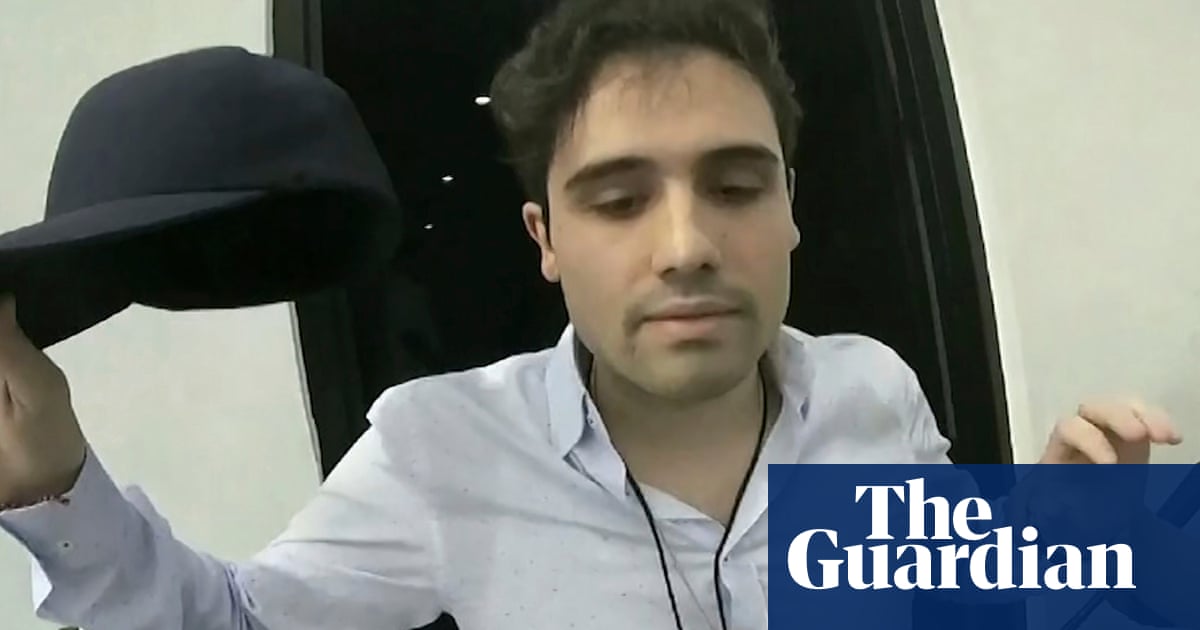The article presents a complex narrative surrounding Ovidio Guzmán, a prominent figure in the Sinaloa cartel and the son of notorious drug lord Joaquín “El Chapo” Guzmán. It highlights the ongoing negotiations with U.S. authorities regarding a possible plea deal and the subsequent movement of his family members to the United States. This situation reflects broader themes in drug trafficking, law enforcement, and international relations, particularly between the U.S. and Mexico.
Implications of Family Movement
The relocation of Ovidio Guzmán's relatives to the U.S. hints at strategic maneuvers within the negotiations for a plea deal. Their presence in the U.S. can be interpreted as a form of leverage, potentially signaling to authorities that their cooperation might yield favorable outcomes. The article suggests that the U.S. Department of Justice has not commented, which could indicate a level of sensitivity surrounding the case.
Public Perception and Fear
The narrative aims to shape public perception regarding the ongoing drug war and the capabilities of the Sinaloa cartel. By emphasizing the familial connections and the plea deal negotiations, it suggests that the cartel remains a powerful force even in the absence of its leaders. This portrayal could evoke fear and concern within communities affected by cartel violence, potentially fueling the narrative of a persistent drug threat.
Potential Concealment
While the article provides facts surrounding the case, it may downplay the broader implications of cartel violence and infighting in Mexico, which has resulted in significant casualties. By focusing primarily on the plea deal and family movements, it risks overshadowing the human cost of the ongoing drug conflict, potentially diverting attention from the need for comprehensive policy responses.
Manipulative Elements
There appears to be a moderate level of manipulation in the article, particularly in how it frames the narrative of the Guzmán family. The emphasis on negotiations and legal proceedings could imply a sense of legitimacy to their actions, possibly leading the public to sympathize with them rather than recognizing the broader context of their criminal activities.
Comparative Analysis with Other Reports
When compared to other reports on cartel activity, this article fits within a larger narrative that seeks to humanize figures like Guzmán while depicting the complexities of law enforcement responses. Other articles might focus more on the violence and criminal undertakings of the cartel, suggesting a divergence in how different outlets choose to present the story.
Impact on Society and Economics
The ongoing developments in this case could influence public opinion regarding drug policy and law enforcement strategies in both the U.S. and Mexico. There may be calls for reform or increased collaboration between the two nations to address the underlying issues of drug trafficking and violence.
Target Audience
This article seems to appeal to a wide range of audiences, including those interested in crime, legal affairs, and international relations. It aims to inform readers about significant developments in a high-profile case while also provoking thought about the implications of drug trafficking on society.
Market Reactions
The information presented may not directly influence stock markets or specific securities, as the drug trade is typically seen as a separate realm from conventional business activities. However, companies involved in security, law enforcement technologies, or drug rehabilitation may find relevance in the ongoing discussions surrounding cartel activities.
Global Power Dynamics
In terms of global power dynamics, the article underscores the ongoing struggle between U.S. and Mexican authorities to combat drug trafficking organizations. The implications of a plea deal could have reverberating effects on international drug policy and law enforcement cooperation.
Artificial Intelligence Involvement
There is a possibility that artificial intelligence tools were utilized in the writing or editing process, particularly in ensuring the article adhered to journalistic standards for clarity and coherence. The AI could have influenced the narrative by emphasizing certain aspects over others, shaping the reader's understanding of the situation.
The overall reliability of the article rests on its factual basis and the context provided, though it may display some bias in framing the Guzmán family's situation. The selective focus on negotiations and family movements suggests an angle that might not fully capture the broader realities of cartel violence.
